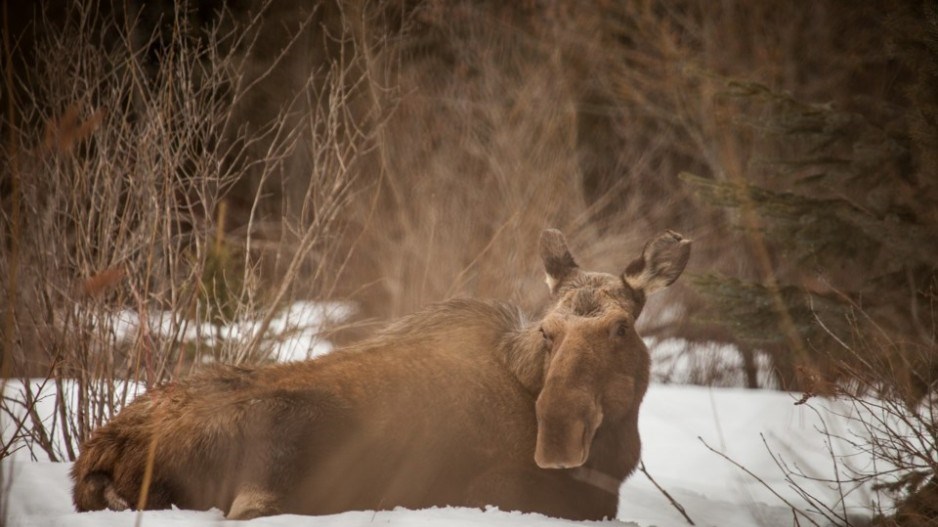Tŝilhqot’in Nation hunters with limited entry hunt (LEH) moose authorizations are being asked to stay home and forgo their moose hunt in Tŝilhqot’in territory this year.
The nation is requesting such hunters consider the impacts of their hunt on the local Indigenous population.
“In our lifetimes, moose populations have plummeted in the Chilcotin. Moose were once abundant, but in recent years Tŝilhqot’in hunters are reporting too few moose on the territory to feed their families and communities,” said Nits’ilʔin (Chief) Joe Alphonse.
Provincial statistics show B.C. has about 170,000 moose. More than 70 per cent live in northern British Columbia and the rest in the Cariboo-Chilcotin, Thompson-Okanagan, and Kootenay regions.
The nation said the province has doubled the number of moose allocations this year compared to 2021. That was done over the nation's objections, the nation said.
It said some Indigenous hunters have chosen not to hunt moose in order to maintain stock for future generations.
“Our households are predominantly low-income, meaning a nearby food source is not only a constitutionally protected Aboriginal right, but also an absolute necessity for healthy living,” Alphonse said. “Now is not the time for LEH hunters to come here. We need to protect our food sources to protect our families and communities.”
He cited a lack of consultation by the provincial government.
“A lot of our moose habitat has not recovered from the 2017 wildfires,” Alphonse said. “Upwards of 80 per cent of some of these areas have burnt and the large scale impacts of wildfire has not been resolved. Moose do not have the protection like they did before wildfire and extensive logging.”
In a statement to Glacier Media, the Ministry of Forests said it recognizes the important place wildlife holds in First Nations culture and that it works collaboratively with Indigenous governments to find common ground.
"The wildlife allocations for licensed hunters for 2022 take into account input from local First Nations, Indigenous knowledge and western science," the ministry said. "We regret that despite significant engagement since September of 2020 we were unable to achieve consensus with the Tsilhqot'in National Government on the 2022 licensed hunting season."




